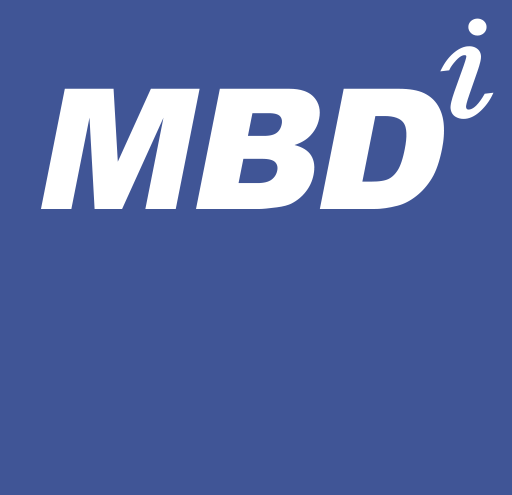Your best new hire may already be on the team waiting to be discovered. What are you doing to find them?
Whether advancing revenue through acquisition or strategic or organic growth, the challenge in many small or mid-sized energy organizations is to grow, be acquired or be gone. Identifying and standing up a Business Development organization is a significant challenge and the buck stops with the individual charged with executing the operational and tactical Business Development plans. Most organizations rely on organic growth for a significant portion of their revenue. Given this, our experience indicates that identifying the most capable individuals to build your Business Development team, and consequently advance revenue growth, is both an art and a science.
Many companies view Business Development as a part-time role, executed in tandem with project management responsibilities. Individuals in these roles have a unique talent base that makes them good candidates for Business Development, whether they are selected or volunteer for the role. They bring leadership and management skills, technical knowledge, as well as client, project and program knowledge. They understand basic goal setting and have usually acquired the ability to plan and to execute a plan.
What you’re looking for are specific differentiators which separate the “stars” from the rest of the pack. These include criteria like possessing people skills, understanding basic psychology and being able to ask questions and gather intelligence. In the Business Development role, an information getter is better than an information giver. There is a big difference in the thinking and process of giving or getting intelligence, and this skill or talent should be leveraged to drive the desired organic growth. This is a learned skill, so providing the appropriate education and professional development, focused upon the appropriate thinking, process and information gathering skills, can help elevate the thinking of almost anyone challenged with a revenue growth role.
By leveraging opportunities and providing mentorship and patience, these apprentices can be groomed and prepared for full-time embedded Business Development roles as “farmers” or “hunters” for new business. Both roles utilize the same basic thinking and process. The main difference between them is the type of opportunity and challenge being pursued. Strategic Hunters and Super Hunters are a different breed altogether. For them, this role is a full-time entrepreneurial career choice driven by commission, incentives and equity opportunities. While Strategic Hunters and Super Hunters are hard to develop from within an organization, exceptions to this rule do exist.
Whether Strategic Hunter, Super Hunter or Farmer, everyone who has customer contact should be offered the opportunity to participate in Business Development education and training, offering the chance to learn the thinking, process and discipline of the role and affording individuals the choice to volunteer or de-volunteer for the Business Development team. Within an organization, everyone who is in contact with a client is in a Business Development role, whether they believe it or not. They should always be attentive to any intelligence, feedback, concerns or possible areas to increase revenue within the client organization. Everyone has listening skills and it’s amazing the information that’s available within an organization once the client views you as part of their team. Often the Intel gathered by project managers far surpasses the information gathered by the Business Development team during their routine visits to clients.
Staffing your Business Development organization with the right professionals can be a major challenge for most companies. There are specific skill sets to consider, a corporate culture to fit and, to make your search more complex, possibly distinct technical knowledge and experience to require. A client once shared with us that acquiring a new Business Development professional for their team was like finding an ivory needle in a haystack!
It’s no wonder that identifying talent outside the organization is considered so difficult. It’s risky business. Whether you’re using internal resources or contracting with an outside search consultant, you’re probably not the only firm looking for the same characteristics in a hire given the distinct requirements. And the talent pool is particularly thin when sourcing specific Business Development professionals in the energy industry.
When hiring from outside the company, one of the most vexing problems we’ve discovered is that even seasoned Business Development managers occasionally have difficulty distinguishing fact from fiction when evaluating potential hires. It’s often more tempting to take a candidate at face value. In hiring Business Development talent, it’s hard to get beyond the “BS” factor. Without a sourcing process which includes the skills to look for and questions to ask, you’re at the mercy of a candidate that talks the talk but can’t walk the walk. Most Business Development managers are looking for a “quick fix”, someone who can impact their short-term revenue numbers. For this reason, some managers are desperate to believe almost anything they hear in a candidate’s interview for a Business Development position. It’s this mindset that makes them particularly vulnerable to being “sold.”
So, how do you ensure that the right people are on board? Take a look within your organization for Business Development talent. From our experience, some of the most successful Business Development professionals never previously held a Business Development title. They arrive in their positions from within the ranks of program managers, project managers and other personnel who are responsible for assuring that your clients’ challenges and problems are resolved. These are the individuals within your company who have regular contact with customers and are consistently successful in identifying issues and positioning themselves with influencers. As such, they may already be serving “unofficially” in a “farming” role and “growing” add-on business for your organization.
These seasoned professionals share your corporate culture and core values. They possess a verifiable track record with your company. They are probably capable of transitioning smoothly from an operational role to an “official” Business Development role. And, they already know your business.
The key to sourcing Business Development talent, wherever it may originate, is to seek out individuals who are problem-solvers, people oriented, possess business thinking and are externally focused. Specifically, these individuals concentrate on the client and the market, rather than themselves and their own need to reach revenue targets. Believe it or not, we have found that extroverted engineers and other outgoing technical professionals make great Business Development people … info getters, rather than info givers.


